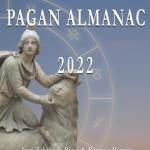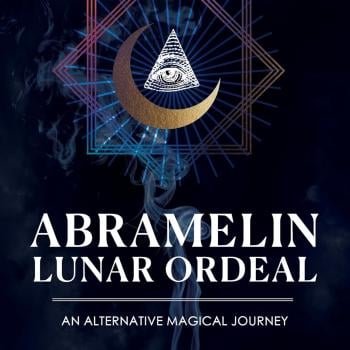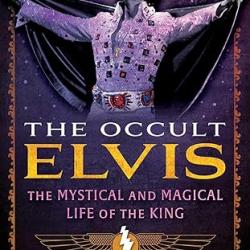For the ancient Greeks, there were different kinds of love to be found in relationships with a wide range of people— spouses, family, friends, strangers, and even themselves. Depending on the source you consult, the ancient Greeks had from five to eight words for love, while modern Greek provides us with another. As a matter of interest, the New Testament uses four of these words for love.
I will start with the four which appear in the New Testament, then add on the ones used by the ancient Greeks and finish with the modern Greek term.

Eros Farnese – statue of Eros of the Centocelle type.
- Eros: or sexual passion, sexual desire
Erôs, otherwise known by his Roman name Cupid, was “the mischievous god of love, a minion and constant companion of the goddess Aphrodite. … It was he who lit the flame of love in the hearts of the gods and men, armed with either a bow and arrows or a flaming torch. Eros was often portrayed as the disobedient but fiercely loyal child of Aphrodite.”
Eros is a passionate and intense form of love that arouses romantic and sexual feelings, leading to the primal impulse to procreate. Eros gives rise to the terms “erotic” and “erotica” which nowadays describe human sexuality. It can also be seen as the origin of many questionable decisions! Eros is a primal and powerful fire that burns out quickly. It could be argued, that for love to endure, Eros needs to be combined with one of the more selfless forms of love, as listed below.
2. Philia: or deep friendship, affectionate love, soul connection
“In contrast to the physical, sexual nature of Eros, Philia is a platonic feeling. This Greek word for love implies spiritual connection, trust, and sharing of the same values. Philia usually grows between friends or family members.” It is a love between equals.
“Plato felt that physical attraction was not a necessary part of love, hence the use of the word platonic to mean, ‘without physical attraction.’ … As Aristotle put it, Philia is a ‘dispassionate virtuous love’ that is free from the intensity of sexual attraction.”
An example of Philia is the “deep comradely friendship which developed between brothers in arms who had fought side by side on the battlefield. It was about showing loyalty to your friends, being willing to sacrifice for them, as well as sharing your emotions with them.” Less dramatically, it is a “type of love that is felt among friends who’ve endured hard times together.”
Philia and Eros make the perfect pairing for an enduring romantic relationship:
“Philia is not relegated to non-sexual and non-romantic relationships, however. It is a vital component of romantic love between couples, and any connection without it is not likely to last. A love that features Eros but not Philia is often a possessive, self-centered love.
Ancient Greek philosophers (as well as many psychologists today) believed that the two work best alongside each other, strengthening each other and the bond between two people. Adding Philia to Eros turns a possessive love into one built around shared goals and happiness. The Greek philosopher Plato believed that the combination of Philia and Eros led to the highest form of love – a ‘friendship between lovers’.”
- Agape: or love for everyone, unconditional love, selfless love
“The highest and most radical type of love according to the Greeks is Agape, or selfless unconditional love.”
“Agape is what some call spiritual love. It is an unconditional love, bigger than ourselves, a boundless compassion, an infinite empathy. … It is the purest form of love that is free from desires and expectations, and loves regardless of the flaws and shortcomings of others.
Agape is the love that is felt for that which we intuitively know as the divine truth: the love that accepts, forgives and believes for our greater good.”
Agape is “a love that you extended to all people, whether they be family members or distant strangers. Agape was later translated into Latin as ‘caritas’, which is the origin of our word ‘charity’.”
“Acts of charity and altruism are often born out of Agape love. It seems fair to argue that a society without Agape would be unable to function, as we are dependent on one another as a species.”
It has been argued that Agape and empathy are in a dangerous decline in the USA and many other countries. We as a society urgently need to revive our capacity to care about strangers.
Agape often results in “immense benefits to the one practicing it – not just in terms of people reciprocating it with love or rewards, but benefits for the mental and emotional well-being of the practitioner. Practicing Agape love can often increase self-love, and higher levels of healthy self-love usually result in an increased ability to feel and show Agape – it is a cycle!”
4. Storge: or familiar love, devoted love
“Although Storge closely resembles Philia in that it is a love without physical attraction, Storge is primarily to do with kinship and familiarity. Storge is a natural form of affection that often flows between parents and their children, and children for their parents. Storge love can even be found among childhood friends that is later shared as adults.”
There is an important difference between Storge and Philia because it is sometimes not reciprocated:
“While the care and devotion of Storge is an integral part of Philia’s connection, it may also be one-sided. An excellent example of Storge is when a parent cares for a child, makes them feel secure, comfortable, and safe, and don’t expect anything in return.”
It has been suggested that due to its powerful nature, Storge results in feelings of wanting to not disappoint family members, and thus embark on unsuitable careers and other courses of action. It can also “become an obstacle on our spiritual paths, especially when our family or friends don’t align with or support our journey.”
The above are the four types of love which we have mentioned in the New Testament as well as being used in ancient Greece. The following types of love were only used in ancient Greece.
5. Philautia: or love of the self, self-love
“The Greeks understood that in order to care for others, we must first learn to care for ourselves. This form of self-love is not the unhealthy vanity and self-obsession that is focused on personal fame, gain and fortune as is the case with Narcissism. Instead, Philautia is self-love in its healthiest form.”
Aristotle believed that “Philautia was a prerequisite to loving others. Healthy self-love is beneficial to every aspect of life, including relationships, and individuals who love themselves are usually more capable of both giving and receiving all kinds of love.”
He stated “All friendly feelings for others are an extension of a man’s feelings for himself.“
“Many destructive behaviors in a relationship can often be rooted in a lack of self-love. However, self-love can quickly turn into an unhealthy form when a person loves themselves more than anyone else. Unhealthy self-love can be expressed through an inflated ego and usually dependent on social status, abilities, or accomplishments rather than genuine virtues.
Healthy self-love is defined by self-esteem that is not dependent on status or competition with others. Instead, it is based more on forgiveness and acceptance of the self.
People with a healthy level of self-love are not arrogant and do not hold themselves superior to others, but are resilient and accepting of their limitations without feeling ashamed of them. These people are less likely to seek external validation through compulsive behaviors, and as a result, can devote themselves better to relationships.”
6. Ludus: or playful love
Ludus was “the Greeks’ idea of playful love, which referred to the affection between children or young lovers … the flirting and teasing in the early stages of a relationship.” There is also the fluttering heart and feelings of euphoria.
“Ludus shares many qualities with Eros, but it is not limited to physical or sexual relationships. Ludus love can also comprise non-sexual activities such as dancing, drinking, and other sensory pleasures that one can enjoy.”
“Playfulness in love is an essential ingredient that is often lost in long-term relationships. Yet playfulness is one of the secrets to keeping the childlike innocence of your love alive, interesting and exciting.”
7. Pragma: or mature love, enduring love, longstanding love
So, while Ludus is carefree and playful love, Pragma is perhaps its polar opposite: it is long-term, cerebral, and based around responsibilities.
“Pragma is a love that has aged, matured and developed over time. It is beyond the physical, it has transcended the casual, and it is a unique harmony that has formed over time. You can find Pragma in married couples who’ve been together for a long time, or in friendships that have endured for decades.”
“The psychoanalyst Erich Fromm said that we spend too much energy on ‘falling in love’ and need to learn more how to ‘stand in love’. Pragma is precisely about standing in love—making an effort to give love rather than just receive it.” The high divorce rate is indicative of the rarity of Pragma in modern society.
“Pragma is the result of effort on both sides. It’s the love between people who’ve learned to make compromises, have demonstrated patience and tolerance to make the relationship work.”
“Although probably the least exciting type of love, Pragma is an essential component of making relationships work in the long term. Pragma is love based on duty, reason, and shared goals. Like Philia, Pragma is not limited to romantic partnerships, although it is a vital part of romantic love. It is essential within families and even close friendships. Examples of Pragma manifestation are personal sacrifices for your partner’s benefit, making life and career choices that are best for your relationship rather than just yourself, and carrying out the daily chores and tasks needed to maintain a happy home.
Pragma love is perhaps the most difficult to develop and maintain, as it requires continual effort, dedication, and often selflessness. However, the results are often extremely worthwhile in the long-term. Even arranged marriages have been sustained and made satisfying through Pragma, and many failing relationships have been saved … partnerships without Pragma are unlikely to withstand the challenges of time.”
8. Mania: or obsessive love
Mania is an unhealthy obsession with a particular individual. “It can be combined with sexual and hedonistic Eros and Ludus but will hardly accompany Pragma or Philia. Mania often manifests through anxiety, emotional instability, jealousy, and possessiveness.”
“Even though a slight obsession can be fairly common during the early stages of a relationship, in the long term, excess of Mania that is unbalanced by other forms of love can lead to dependency and even stalking or violence.”
“These days ‘mania’, and its derivation ‘manic’ are used in the field of psychiatry to describe components of certain mental illnesses, as well as being used in less formal settings to define hyper obsession or fixation.”
“To those who experience Mania, love itself is a means of rescuing themselves; a reinforcement of their own value as the sufferer of poor self-esteem. This person wants to love and be loved to find a sense of self-value. Because of this, they can become possessive and jealous lovers, feeling as though they desperately ‘need’ their partners. If the other partner fails to reciprocate with the same kind of Mania love, many issues prevail. This is why Mania can often lead to issues such as codependency.
This ends the types of love known to the ancient Greeks. The last type of love is only recognized in modern Greece.
- Meraki: or creative endeavors
Meraki is “a modern Greek word … means to do something with love, creativity, and devotion when you wholeheartedly put yourself into what you are doing.
Meraki is often used to describe creative or artistic expressions such as painting, singing, or composing music. Also, it can manifest in cooking, decorating a room, or nicely setting up a table. … Making a nice dinner is a perfect manifestation of Meraki!”
I’ve had to amend this blog thanks for input from Gordon Cooper. The source I used here claimed that the term Meraki was “derived from the Turkish ‘Merak’.” This is not the case, as even though the two words are very similar in spelling, their meanings are very different. Merak means “be curious, care, worry, be anxious, wonder”, which obviously has little connection with the modern Greek meaning. It just goes to show that online articles should really be fact checked prior to usage.
The source materials for this blog can be found here:
https://lonerwolf.com/different-types-of-love/
https://www.greecehighdefinition.com/blog/9-different-types-of-love-according-to-the-ancient-greeks
https://greekreporter.com/2021/08/21/love-like-a-greek-the-six-types-of-love-2/
https://greekcitytimes.com/2020/02/14/the-8-ancient-greek-words-for-love/
Tony Mierzwicki
Author of Hellenismos: Practicing Greek Polytheism Today and Graeco-Egyptian Magick: Everyday Empowerment.
















